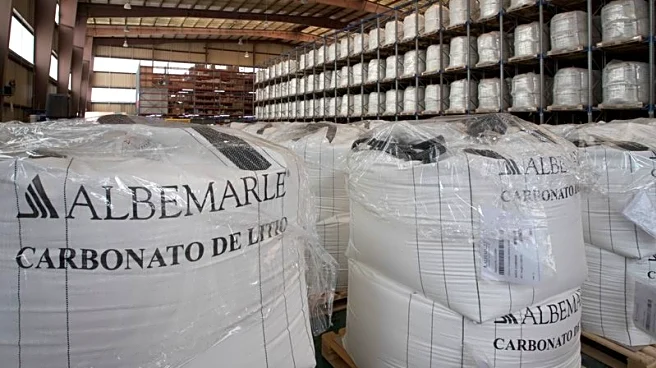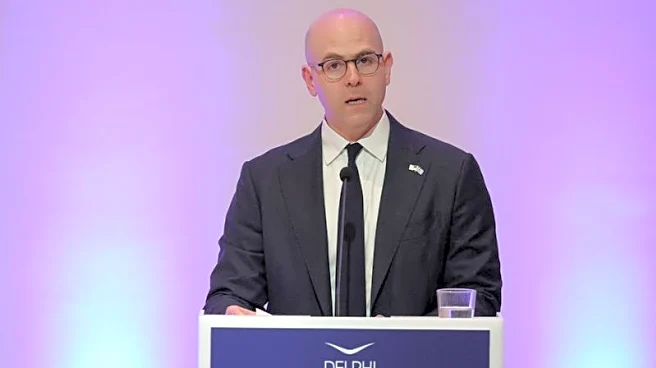What's Happening?
In response to the challenges posed by traditional take-home essays, a new approach to essay writing has been introduced in higher education. This method involves structured, in-class writing exercises designed to scaffold the classic term paper. The
initiative aims to address the shortcomings of traditional essays, which often result in hurried, superficial work. By implementing slow-thinking pedagogy, educators encourage students to engage deeply with complex questions over an extended period. This approach includes researching topics, developing problem statements, crafting theses, and anticipating objections, all conducted during class time. The goal is to foster genuine intellectual engagement and critical thinking skills among students.
Why It's Important?
The shift in essay writing methodology is significant as it addresses the growing concern over the impact of AI on student learning. Traditional essays often fail to promote deep reasoning, leading students to prioritize sounding smart over genuine understanding. By redesigning the essay process, educators aim to cultivate intellectual virtues such as patience, humility, and resilience. This approach not only enhances critical thinking but also prepares students for real-world challenges by encouraging sustained intellectual work. The initiative reflects a broader trend in education to adapt teaching methods in response to technological advancements and changing student needs.
What's Next?
As this new essay writing approach gains traction, it may lead to broader changes in educational practices. Institutions might consider integrating similar methodologies across various disciplines to promote deep learning. The success of this initiative could inspire other educators to rethink assessment methods and prioritize intellectual engagement over rote learning. Additionally, the emphasis on slow-thinking pedagogy may influence curriculum design, encouraging a focus on depth rather than breadth of content. This shift could ultimately reshape the educational landscape, fostering a generation of students equipped with critical thinking skills essential for navigating complex global issues.
Beyond the Headlines
The adoption of slow-thinking pedagogy in essay writing highlights the ethical considerations of integrating AI into education. By designating certain spaces as AI-free, educators emphasize the importance of organic intellect and raw human thought. This approach challenges the notion that technology must permeate every aspect of learning, advocating for a balanced integration that preserves essential intellectual habits. The initiative underscores the need for deliberate spaces where students can develop critical thinking skills independently, without relying on AI-generated solutions. This perspective may influence future discussions on the role of technology in education, advocating for thoughtful integration that supports, rather than replaces, human cognition.

















